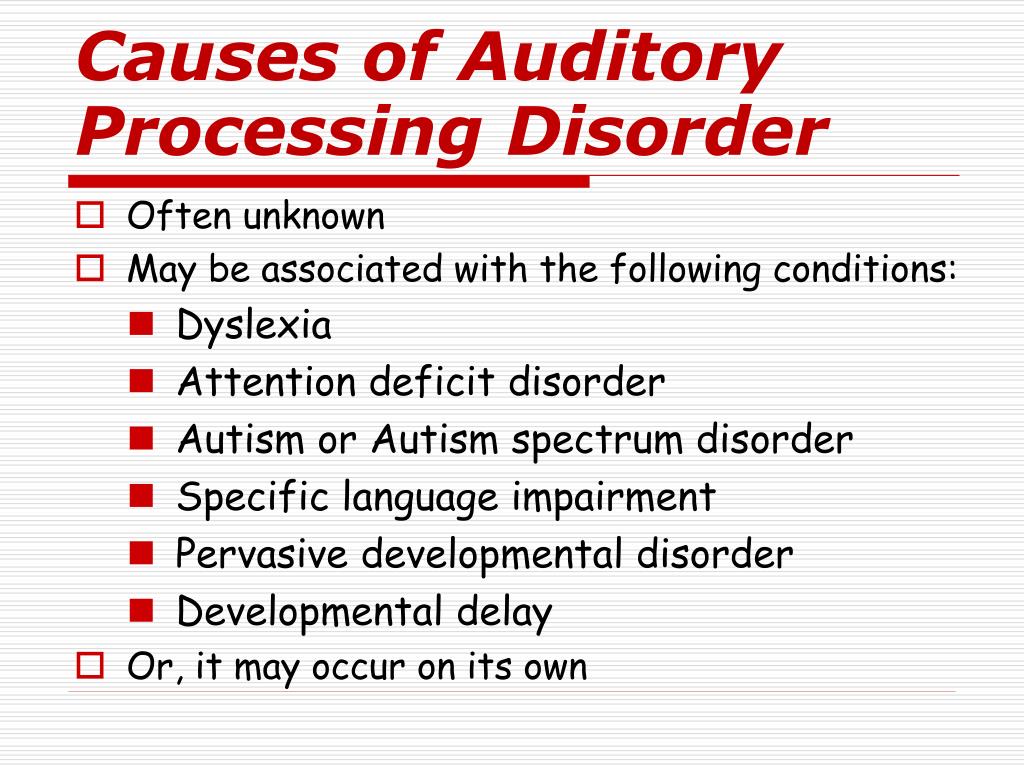

I'm going to start paying attention to this now when I am on my meds! then cutting the person off 3 seconds later because your brain finally processed it and you can't control the urge to tell them this, so not only did you make someone repeat themselves, but you have now interrupted them. The worst is saying "what?" because you know someone just said something to you but you have no idea what they said. It's frustrating for everyone, and embarrassing for me. But mostly, there is that delay you are talking about. Sometimes they sound like the adults in old Charlie Brown cartoons (wahh wahh wahwah wahhh). To answer your question directly - I'm not sure if medication is helping yet or not as I am still figuring out the right dosage and timing.but I will say that for all my life, there has been a definite delay or obstruction in how I process other people talking.

#Adhd auditory processing delay free#
Our experience is yes and that Bérard Auditory Integration Training (AIT) helps train the brain to interpret better what the ears hear.Ĭontact Us for a free telephone consultation and further information.Oo! Did you see the other thread about sound sensitivity? If not, you should read it! It's should still be on the front page of the sub. Can Auditory Processing Difficulties be helped? They may sometimes behave as if they have a hearing loss. The extra effort required of a person to make sense of this distorted input can lead to tiredness and, in more severe cases, to ‘tuning out’ or ‘switching off’ and retreating into their own world. Where this process does not work well, distorted information will be received. Poor auditory processing can have a negative impact on language acquisition, behaviour and social or academic performance. Those with APD / CAPD have difficulty attending to, storing, locating, retrieving, and/or clarifying auditory information to make it useful for academic and social purposes. Put simply, “it is what the brain does with what the ear hears” (Katz 1994). It also requires the ability to effectively separate meaningful messages from the non-essential background sounds and deliver that information with good clarity to the brain. It involves the brain’s ability to sort through the sounds and make sense of all the incoming information. Processing auditory information goes beyond just hearing. Improved ability when in quieter settings or one to one interactions.Difficulties in understanding abstract information.



 0 kommentar(er)
0 kommentar(er)
